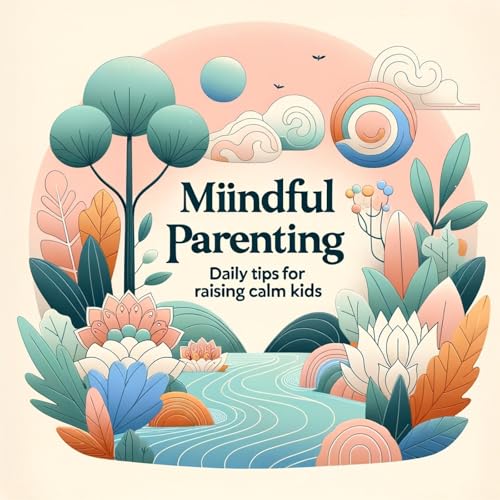-
サマリー
あらすじ・解説
Here's the script for "Mindful Parenting: Daily Tips for Raising Calm Kids":
[Warm, inviting tone]
Hello there, and welcome. I'm so glad you've carved out this moment for yourself today. Right now, in early January 2025, I know parenting can feel like navigating a complex landscape—especially when the new year's resolutions and winter blues are swirling around us.
[Soft, centering breath]
Let's take a moment to ground ourselves. Wherever you are—whether you're sitting, standing, or sneaking in this practice during a brief moment of quiet—allow your body to settle. [PAUSE: 5 seconds]
Imagine your breath as a gentle tide, moving slowly in and out. Not forcing anything, just observing. [PAUSE: 3 seconds]
Today, I want to share a practice I call the "Emotional Compass"—a mindful technique to help you and your children navigate challenging emotional terrain.
Picture your emotions like a weather system. Sometimes they're calm like a clear sky, sometimes stormy like turbulent clouds. The key is not to fight the weather, but to observe it with curiosity and compassion.
[Guided Practice Begins]
Close your eyes if that feels comfortable. Take three deep breaths. [PAUSE: 5 seconds]
Now, imagine a compass in your mind. But instead of cardinal directions, this compass shows emotional states: calm, frustrated, excited, worried.
When you or your child feel an intense emotion rising, pause. Place your inner hand on the compass. Which direction are you pointing? [PAUSE: 3 seconds]
Don't judge the direction. Simply notice. "Oh, I'm feeling frustrated right now." Or, "My child seems anxious."
Breathe into that awareness. Let the emotion move through you like water through a riverbed—fluid, changing, never static. [PAUSE: 5 seconds]
Visualization: See yourself as a wise, steady lighthouse. Emotions are waves around you. You can observe them without being swept away.
[Integration]
As you return to your day, carry this compass with you. When big emotions arise—with yourself or your children—take a breath. Check the compass. Observe without attachment.
One small practice: When your child experiences a strong emotion today, pause. Take a breath together. Notice where the emotional compass is pointing.
[Closing]
You're doing important, beautiful work. Parenting is a journey of continuous learning and love.
Breathe. Trust yourself. You've got this.
[Warm closing]
[Warm, inviting tone]
Hello there, and welcome. I'm so glad you've carved out this moment for yourself today. Right now, in early January 2025, I know parenting can feel like navigating a complex landscape—especially when the new year's resolutions and winter blues are swirling around us.
[Soft, centering breath]
Let's take a moment to ground ourselves. Wherever you are—whether you're sitting, standing, or sneaking in this practice during a brief moment of quiet—allow your body to settle. [PAUSE: 5 seconds]
Imagine your breath as a gentle tide, moving slowly in and out. Not forcing anything, just observing. [PAUSE: 3 seconds]
Today, I want to share a practice I call the "Emotional Compass"—a mindful technique to help you and your children navigate challenging emotional terrain.
Picture your emotions like a weather system. Sometimes they're calm like a clear sky, sometimes stormy like turbulent clouds. The key is not to fight the weather, but to observe it with curiosity and compassion.
[Guided Practice Begins]
Close your eyes if that feels comfortable. Take three deep breaths. [PAUSE: 5 seconds]
Now, imagine a compass in your mind. But instead of cardinal directions, this compass shows emotional states: calm, frustrated, excited, worried.
When you or your child feel an intense emotion rising, pause. Place your inner hand on the compass. Which direction are you pointing? [PAUSE: 3 seconds]
Don't judge the direction. Simply notice. "Oh, I'm feeling frustrated right now." Or, "My child seems anxious."
Breathe into that awareness. Let the emotion move through you like water through a riverbed—fluid, changing, never static. [PAUSE: 5 seconds]
Visualization: See yourself as a wise, steady lighthouse. Emotions are waves around you. You can observe them without being swept away.
[Integration]
As you return to your day, carry this compass with you. When big emotions arise—with yourself or your children—take a breath. Check the compass. Observe without attachment.
One small practice: When your child experiences a strong emotion today, pause. Take a breath together. Notice where the emotional compass is pointing.
[Closing]
You're doing important, beautiful work. Parenting is a journey of continuous learning and love.
Breathe. Trust yourself. You've got this.
[Warm closing]



